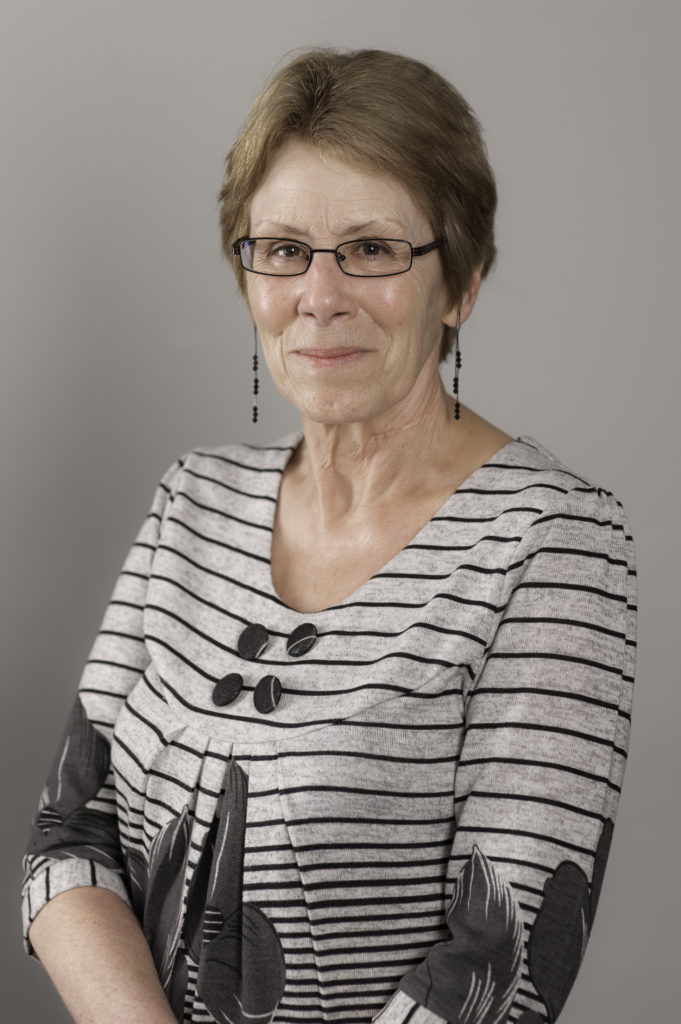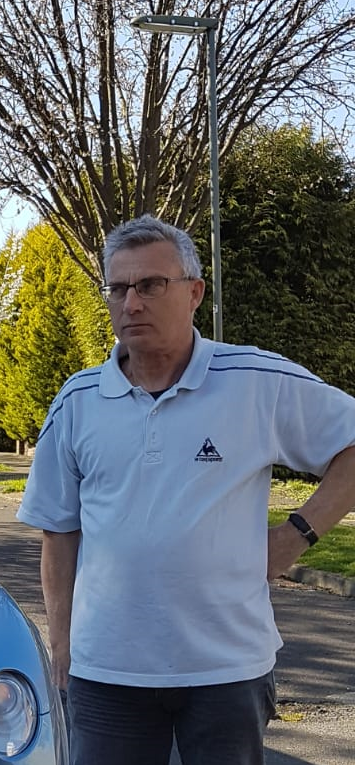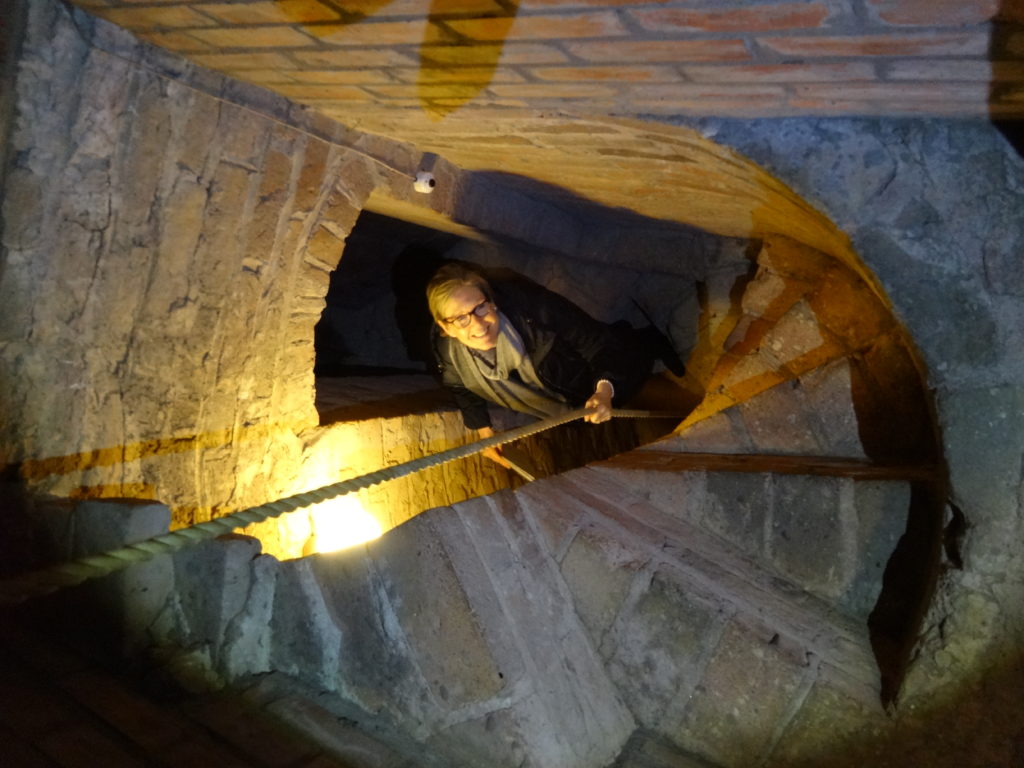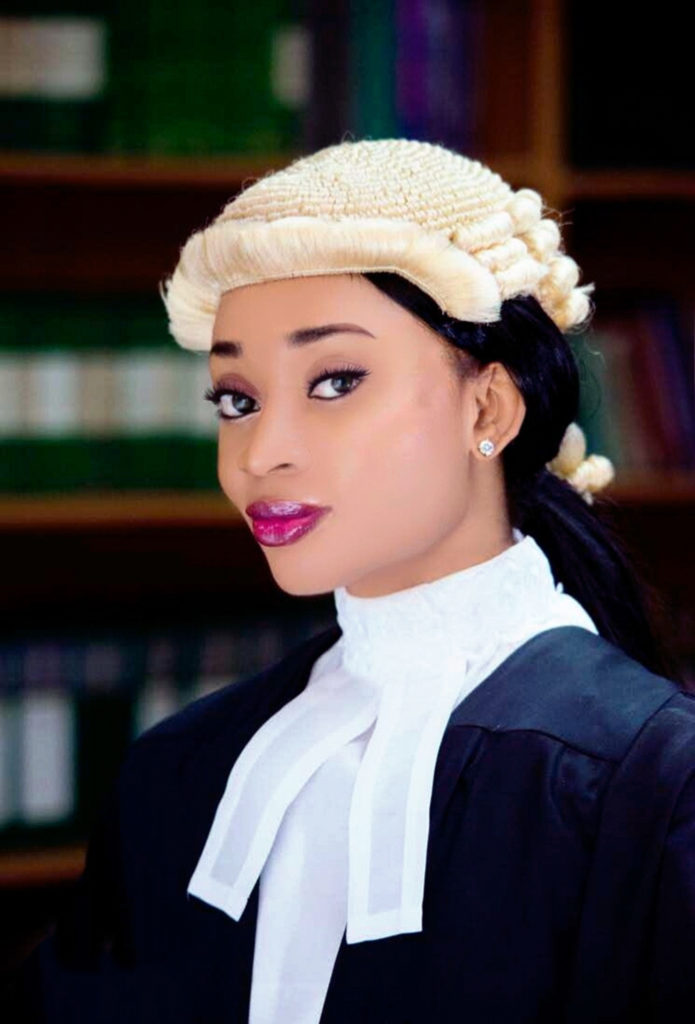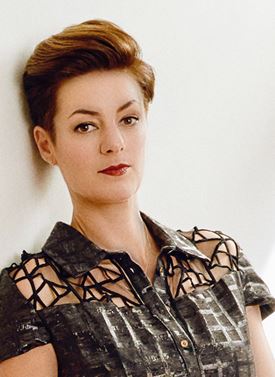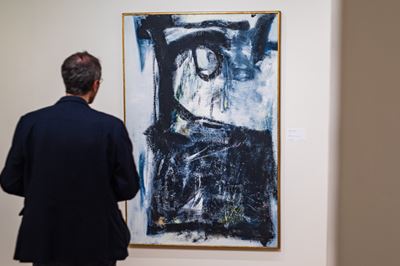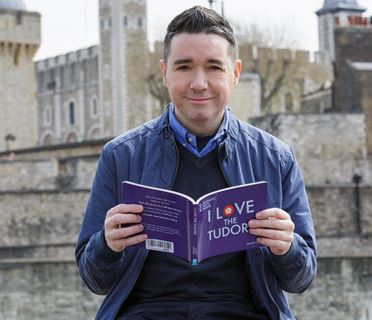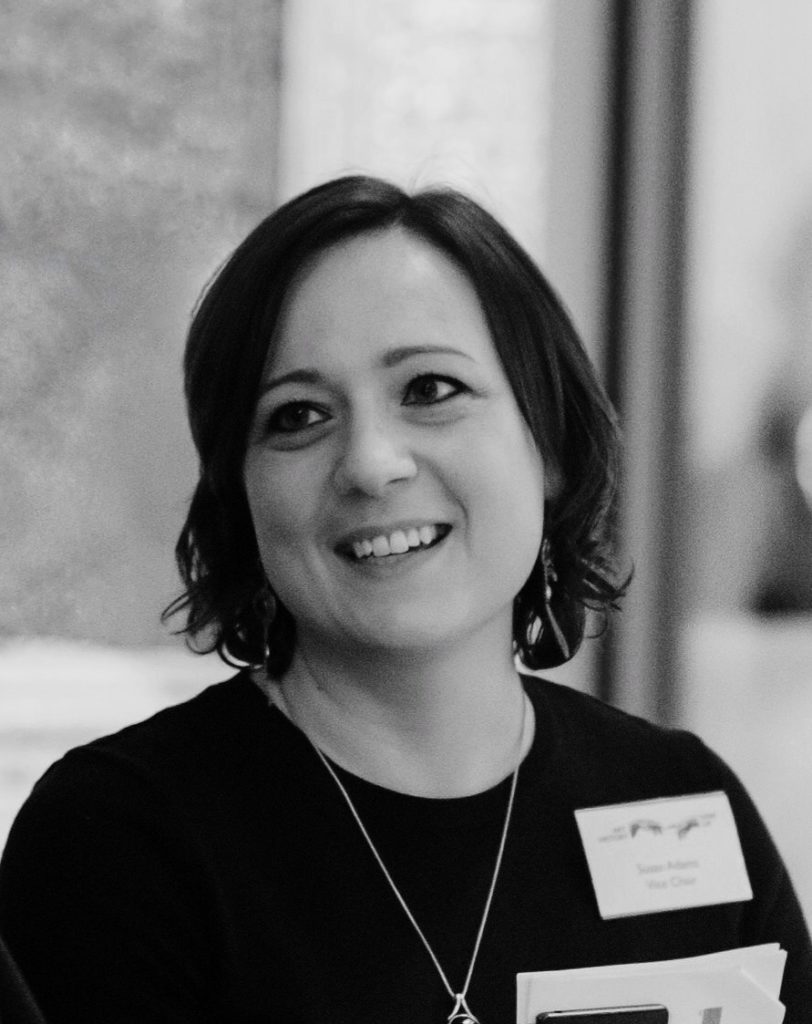The following blog is a transcript of a Birkbeck Inspires: Conversations with Alumni Podcast. You can listen to the full podcast here
Hello and welcome to the Birkbeck Inspires conversations with alumni podcast series, where we hear from former students and find out more about their time at Birkbeck. Birkbeck Inspires is the college’s free online events, activities and resources programme which has been designed to inspire learning, provoke thought and entertain and excite curious minds.
In today’s episode, Victoria Hurwood from Birkbeck’s Development and Alumni team speaks to former student, Siobhan Andrews Kapoor, who graduated from the college with an MA in History of Art in 2009.
V: Hi Siobhan!
S: Hi Victoria, how are you?
V: I’m good thank you, how are you doing?
S: Good, thank you.
V: Well, thank you so much for joining me today, I’ve been really looking forward to having a conversation with you just to hear about your experience at Birkbeck, why you chose Birkbeck and your career since. So Siobhan, you studied History of Art in 2009.
S: I did. Yeah, I did a Masters degree.
V: Perfect. And you have such an amazing variety of experiences and I’m really excited to just kind of get into it today with you. Can you tell me a little bit about yourself to start?
S: Yeah, so I have kind of a two-part career. On the one hand, I am a marketing consultant and a creative producer, particularly working in cultural projects, recently I was working with an organic food brand on reversing marketing outreach, and I also work as a wellness coach, so working mostly one on one with clients just to improve their lifestyle. I’ve had some nutrition training and whatnot, so I do that as well at the same time.
V: That’s amazing. It sounds like such an amazing balance between marketing and then also thinking about the more holistic view of it as well, it sounds like you have a huge experience over lots of different fields. So where are you in the world and how has your life recently changed because of the Covid-19 crisis?
S: I’m in London. I was in India for the last 4 years, and we’d actually, my husband and I, had just made the move back to London in January, so it wasn’t quite the welcome back that we were imagining! But it’s been nice to be back in the city, and obviously closer to family and everything while this is going on. And yeah, I mean, life has changed for me in the same way that it has for many people. Unfortunately a lot of the projects that I had in the pipeline, a lot of them are events or festivals, a lot of offline happenings, and obviously most of those are not happening, or been delayed, which has been a shame, but still continue working on communications and social media, and then my coaching is still ongoing and actually it seems like people need it more than ever right now and their managing so much more stress and anxiety. So it’s been really nice to kind of have the opportunity to connect with people, and actually really put the tools and practices into effect, in a time when we really need it. So lots has changed, and sort of nothing has changed as well in the same way, so it’s still the same day to day. And because I’ve been freelancing so many years, I’m actually really used to working at home, that doesn’t feel that unusual for me. So yeah, it’s been alright.
V: Gosh, it sounds like there’s been so much change, but that you’ve almost had the training from being freelance, and you know, having multiple career paths, that you know, it’s hopefully equipped you for this kind of situation as much as you can be.
S: Yeah, I guess no one’s really equipped for this kind of thing really. But yeah I think having worked in a sort of project by project basis as well, I’m used to things kind of starting and finishing and having to juggle quite a few things all at the same time. And I think when you’re freelance as well you tend to be quite resourceful because you’ve sort of always had to be, because you’re always looking for the next piece of work or whatever so that’s maybe been a skill that’s been helpful at the moment. But yeah, I mean still adjusting I think even after two months or whatever we’re at now.
V: Oh definitely, I think there’s a long period of adjustment, and it’s such a strange world that we’re in at the moment. With your kind of work with, obviously a lot of offline events, have you found that lots of them have been moved online, as different ways of trying to communicate with your target audiences and things?
S: Yeah, I mean I’ve obviously seen a lot of people trying to innovate now and work out how they can still engage their community, how they can still provide some meaningful experiences, but you know, how to do that with this situation, so there’s obviously been a big shift over to digital and lots of people trying to do things digitally which I think in some situations works really well, in others it doesn’t translate and I, you know, having worked in events and production for so many years I personally feel there’s nothing like when you get a group of people together in person and it’s just so special, and I’m not sure whether that’s ever going to be able to be recreated in the same way online. But in a way it’s great to have the chance to explore and really see what can be done, but yeah, a lot of projects have been postponed until further notice. So it is difficult not having clarity on a few things, and trying to keep projects ticking along, and the artists that I work with, trying to keep them engaged, but not really knowing when it’s going to be when we’re actually able to put a show on or whatever, so it’s a little bit up in the air, but definitely seeing some innovation and move towards digital platforms, so I am quite interested to see what happens, especially in the art world. I mean we’ve seen, particularly in art fairs, and those things going on in the more commercial space moving online. We’ve just had Frieze New York, so it’s quite nice to be able to attend without having to get on a plane, and that kind of thing! But it’s not quite the same experience, but let’s see, I think we’re at the very start of actually digital innovation, so I’m very interested to see what happens next.
V: I suppose it does give you that freedom, that sounds amazing, that you can attend events in New York and all over the world, so it does have an international outlook, although I know that you know, some of the artists, and people in the art world in general, are struggling. It’s nice, I guess that’s a different side of accessibility to others, if everything’s online.
S: Absolutely, yeah. And I think you know, another shift that we’ve seen is more of the arts institutions really taking social media seriously, which is funny because when I was working in commercial galleries, at the beginning of my career, you know galleries wouldn’t, like they didn’t really care about social media, because it wasn’t really speaking to the audience that they were interested in, whereas now I think, you know, they’re really waking up to the fact that there’s all sorts of conversations with all sorts of communities going on, and they need to be part of that to stay relevant, and to sort of leverage the careers of their artists. So, it’s a very interesting thing, a lot of those engaging more on social media and doing more and coming up with interesting content. So yeah, there is some excitement despite everything!
V: Yeah, I guess that’s a huge period of transition. In terms of Art Week, I do want to plug Birkbeck as doing an Art Week at the moment, so I think a lot of that is online, there’s a lot of lectures, a lot of Q and As and things, and I know that alumni can try and take part wherever they are in the world. Bringing it back to Birkbeck, so I know that you studied History of Art, an MA. Why did you choose Birkbeck and why History of Art?
S: Yeah, so my background was in History of Art already, I did my undergrad in History of Art and like I said, I’d actually been working for a few years in commercial galleries before deciding to do a Masters. And, you know, for me, the main reason was practical, I needed to continue working, I actually wanted to continue working, to keep my foot in the door of the art world, and obviously Birkbeck is so perfect for anyone that’s a professional and wants to continue learning. And the other thing that I was really aware of was that I was a little bit older, I mean I wasn’t that much older I was about 25 or 26, but I wanted to be in a group, like a class group, with people that were my age or older, I didn’t want to feel old. And I was really drawn to Birkbeck because obviously they’ve got a great reputation, but also there was just so much diversity and that really came through, even from the open day that I attended, and I really liked that idea, that just to have a real mix of opinions, and not just hearing the same world view and so I was really drawn to it in that regard.
V: That’s so lovely to hear. And I know that, you know, diversity and diversity of thought, as well as the diversity of people in the room, is so important to Birkbeck, and you know that whole theme of lifelong learning, I think it’s so bizarre now to think that once you finish high school you go straight into your higher education and then that’s you done ready to work in the world. I think it’s such a strange idea.
S: And for me, you know, the gallery world, or even the wider sort of cultural landscape, it is an industry of research, you know, we are looking, whether it’s even at contemporary artists or historical artists, periods in time, and I think for me I really wanted to upgrade my skills to develop my research abilities, even just down to writing and being able to put a cohesive piece of writing together, that’s really important for me in the work that I was doing, and it’s helped me throughout the whole of my career with curation and production, so yeah, I mean I think the skills were really important to me at that time.
V: That’s so lovely to hear. When you were at Birkbeck, I know that you actually did it full time while you were working full time as well didn’t you?
S: I did, yeah and it was a little bit intense. I was very lucky that my employer was really kind and let me reduce my hours a little bit in the end when I was doing my dissertation, because that was where the weight of my mark was going to come from, so she was really understanding and sort of allowed me a bit of free time, but other than that I was going into the gallery that I was at that time for a full day, and then going straight to Birkbeck in the evenings! But you know, I mean, organisational skills are obviously super important, whenever trying to do two things at the same time, so I just had to be really strict with myself and study whenever I could, but it was a challenge and most people on my course were doing part time, but yeah for me it worked out. But I would have probably in hindsight, liked to have spent more time on it, just to sort of enjoy it for longer, because I loved being a student in London. And you know, why do it for one year if you can do it for two?
V: That’s true! Spread out the joy! I think that’s the thing with Birkbeck. We try and make sure there’s that flexibility around it, so, yeah, I know that some students for example go full time and then decide that they want to go down to part time, or I know a lot of students are doing part time if they’re working full time, it’s just kind of what works best for you. Do you have any highlights from your time at Birkbeck, or a moment that you thought, that was amazing?
S: Really for me it was just being part of a great group of people. I can’t remember exactly how many were in my year, but I’ve made such great personal connections, and also professional connections. A lot of people were already working in the arts in one way or the other whether it was in a museum, or a magazine, or whatever, and I made great connections that actually really helped in my career after that, and made great friends as well, who you know I’m still friends with today, which is lovely. And like I said, just being a student in London, I’d never been a student in London because I’d studied elsewhere before, and I just think it’s amazing, you know? We’re so spoiled for resources. I could go to all these amazing museum shows, I had so much access even just for nightlife and the overall side of Bloomsbury. There’s nothing like it really! And yeah I just loved it, it was great. And you know, being part of the Birkbeck community but then also having the wider University of London community is also excellent, and being able to use the Senate House library when I wanted, I even used the arts library at UCL at times, you know, and I think you just really feel part of something, and yeah I definitely hadn’t experienced it to that degree previously. So it was a very special year for me.
V: I’m so glad that you enjoyed it, and I completely agree, I think that Bloomsbury is such an amazing mix of different institutions, educational institutions and people, and you know, everyone’s motivated and studying, and when other universities have students during the day, Birkbeck has it during the evening, so it’s a constant flow of people, and it is, yeah, it is a really special place to be.
******
V: So after you finished Birkbeck, I know that you worked internationally, and you worked in India for a couple of years. What advice would you give to students or alumni that want to have a more international career?
S: Yeah, so I was in Delhi, actually it was 4 years, it was longer, it didn’t feel that long actually! But I was quite lucky because I actually went to India on sabbatical, and just wanted to go travelling. I was really just taking a bit of a break from the company that I’d been running before. And I sort of accidentally ended up positioning myself sort of an India expert, which was totally not my intention of going on sabbatical, but an ex-client of mine got in touch because she knew I was there and she had a project that needed someone to work on it in India on the ground, and she asked me if I could get involved. So my experience is definitely, it was a serendipitous one, but I would say that you know, that really speaks to the fact that if you show yourself to be interested, or you know sort of an expert in the country or the place that you want to move to, then you actually just set yourself apart from the rest. Especially in a country like India which is quite difficult to integrate into, and if you’re from outside it seems kind of impenetrable. So definitely thinking about where you want to be and then just really throw yourself into some research you know? Connect with people as much as you can, which we can still do online, you know LinkedIn and whatnot. I’ve actually recently joined another networking website that might be helpful for people, which is called Lunchclub. You basically join as a member, and they match you week by week with different people that you can have like a 45 minute Skype call with, so you are matched with people in your industry if you want that, but it’s great, I’ve met people in New York and then all over the UK, so I think you know, doing what you can to network in the country or the city that you’d like to work in, and then of course, looking at the companies that you might want to join and seeing, do they have an international presence, do they have offices in a city that I might be interested in transferring to one day, and yeah just being a bit strategic when it comes to applying for jobs and looking for opportunities, and you know, even if there’s no work opportunity then think about volunteering or getting involved in a project that you might be able to support from afar. The great thing right now is that I think lots of people are, there’s no boundaries anymore, everyone’s doing everything online, why not do something for someone in America? It’s no different to doing something for someone down the road, so it’s actually a great time I think to work with international communities, so yeah, definitely looking around seeing what you can get involved with is good.
V: That’s fantastic, so many great pieces of advice there, and I suppose, yeah, now is as good a time as any to reach out to people and try and make those connections. I suppose there is so much you can do even before you get to the country that you’d like to be in that you can do online.
S: Absolutely.
V: So yeah, no that’s absolutely fantastic. And I know that, you know, everybody has a lot of time at the moment, free time, so hopefully it will aid those connections a little bit more.
S: Yeah, I think you’re likely to get quicker LinkedIn responses at the moment!
V: I think so! I definitely think so. That’s one benefit, you know, everyone’s just looking on LinkedIn, having a scroll! In terms of having more free time, what kind of activities or hobbies, or books or anything, has there been anything that’s helped you during lockdown at the moment?
S: Yeah, I mean I really like walking, and just getting out into nature is a huge, it’s just so helpful at the moment. And we’re very lucky where we are, we’re not far from Hampstead Heath in north London, so I’ve just been able to get out almost every day for a long walk, and you know I actually love listening to podcasts and audio books and I do that on my walk sometimes. There’s actually, there’s a few really good podcasts that I listen to regularly, and one of them kind of speaks to this sort of, you know, multistrand career that we’ve been talking about, which is called ‘Amazing If’, is the podcast, I think that’s right. It’s by two women who wrote a book called Squiggly Careers, and it’s all about, they both have marketing backgrounds, but it’s all about people who sort of have these hybrid roles, where they’ve kind of dipped from one industry to another, or one kind of role or department to another. When I came across their book originally, it really was like a lightbulb moment for me, because I was like, oh my God, that’s me! You know, that’s how I’ve been working, and I’ve always found it really difficult to explain the different things I do and the different interests I have, so I’ve been listening to that podcast, it’s weekly, so that’s a great one. And really helpful for career advice, they give very strong career direction, and really thoughtful episodes, so that one I definitely recommend. And there’s another one by an American writer called Gretchen Rubin, that podcast is called ‘Happier by Gretchen Rubin’. She wrote a book called The Happiness Project, which I think is one of her first big books, and another one which she’s written more recently is called Better than Before. And she’s really looking at kind of, lifestyle upgrades, and just how we can function in a better way, and kind of have more fun and be happier, that’s the focus of her happier project. But it’s very interesting psychology-based lifestyle improvement books I guess. I don’t know if that makes it sound a bit self-happy, but its not! The episodes are really really good, so yeah I recommend that as well. And like everyone I’m just busy cooking, you know! Which has been nice. And yeah, just like I said, trying to be outdoors as much as I can. I know it’s difficult, especially when you’re in a city, but the nice thing is just being to kind of, there’s less traffic, so we’re just walking down the middle of the road when we can!
V: That’s nice! It must be really surreal and kind of strange just walking down, being like a few months ago this was absolutely packed. These sound like amazing podcasts, anyone who knows me knows I love podcasts, I’ve not heard of those two so I’ll definitely look them up and see.
S: And if anyone’s interested in nutrition and that kind of more style of lifestyle things, there’s also a podcast by Deliciously Ella, I don’t know if you’ve heard of her, but she’s quite a big food influencer and brand, and her weekly podcast is also really nice if you’re looking for anything particularly nutrition, food based that’s a really nice one as well.
V: I’ve heard her speak before actually about her own kind of journey, it’s really inspiring, and kind of figuring out what worked best for her. I think that’s kind of how Deliciously Ella came into being, and I think she’s a really engaging person to listen to.
S: Yeah, absolutely. I think anyone with interesting stories, and actually all of the women, and yeah they’re all women, I didn’t really mean to do that! But they’ve all kind of got interesting backgrounds and they’re all sharing what they’ve been through, and I think it just feels very authentic, and I think at this time it’s really helpful to sort of have, at least for me, to have reflective things to listen to.
V: I’ll definitely tune in! That’ll be me on my walk today, I’ll go and have a look at them. So I guess you’ve also been involved with Birkbeck through our alumni volunteer and get talking programme, and I know that we originally met on an open day where you were part of an alumni panel, have you enjoyed your part in these programmes, and what benefits do you think there are with being involved in Birkbeck in this way?
S: Yeah, I mean I’ve loved being a part of it, and actually its funny because it’s something I’d wanted to do, I’d wanted to volunteer for Birkbeck for years but because I was in Delhi, and so many things were offline, I wasn’t able to get involved, and then the funny thing is now I’m in the city but I’m doing everything online with everyone! Apart from obviously the open day, which I did in person. But yeah, I mean I love being part of it, and I really felt for a long time that I wanted to do something to help support new students and you know, really just stay involved in what Birkbeck was doing. I’ve always really strongly believed in the university, and the sort of widening the access for education, and anything I can do to sort of help support new students and making sure that they had a sort of easy route in, that was why I really wanted to get involved. And the Get Talking programme that I was just part of recently, I mean it was great. I was speaking to a woman who is joining in the new academic year who lives in Botswana, and she’s moving her, I’m not sure, maybe she’ll be online to begin with, but she’s moving her whole family to London, and she’d never been to the city before, she’d never been to the UK! And you know, I ended up sort of describing Bloomsbury to her, and trying to tell her what her route from her flat to the college is going to be, and I think, just having a human person that you can just like have a really normal conversation with about such mundane things you know, like, where do you get your coffee from? And what’s it like? And you know, it was really nice to just be able to fill in a little bit of the gaps, just to sort of illustrate it a little bit to her and yeah, it was just a really nice opportunity so hopefully I’ll stay involved in an ongoing way. But yeah, I think any alumni who really enjoyed their experience, you know, we’ve all got career experience, we’ve all got something that we can share, you know, so it’s a really nice chance to do that.
V: I’m so glad that you enjoyed it, and we absolutely loved having you part of it. I think there’s no better people to give you a really truthful insight to what Birkbeck is, than the people who have already gone through the process, so I think it’s so valuable and we’re so appreciative of people who want to get involved in this way. I can imagine, I’ve studied abroad before, and gone abroad, and it always seems like such a strange experience where you’re just looking things up online and you’ve not got a person who’s been through it and experienced it, so it kind of adds that character and a bit more colour to what Birkbeck is.
S: Yeah absolutely. I mean this student she was sort of early 40s and she was quite concerned that she might be old in her group, and it’s just, I think I was really helpful for her to hear no, that in my experience there was such a range of people. We had a 70 year old on our course, so you know it was nice to be able to tell her that and to put any fears that she might have to rest.
V: Yeah that’s interesting. We do have such a wide-ranging age between people. I know that lots of people for example all the time think, oh now’s the time I really wanted to learn history or things like that, and they come into Birkbeck, and I think that’s what makes it so rich, there’s so many different people at so many different stages of career and their life that you know, its just a really great experience to not only benefit from the academic excellence of Birkbeck, but also the people that make it what it is, and I guess that led on to my next question that I’d like to ask about, what you think makes Birkbeck special?
S: I mean for me, I was always drawn to Birkbeck because I just really resonated with the principles of the college, and like we’ve already said I think access to education is really important. And I think, you know, the more liberal, the more diverse mindset definitely aligns with my own values. And you know, Birkbeck clearly makes it as accessible as possible whilst keeping that academic excellence that you mentioned, and you know I think just the supportive nature of the staff and you know, it just really feels like a community, hence still wanting to be involved with it 10 years later or whatever! But definitely just the diverse mix of people, and I think there’s always so much scope for invention and you know, thinking about things in a new way, when you have a great mix of people who are coming from research backgrounds, you know there’s so many accomplished people who are part of Birkbeck, from the tutors down to the students, so yeah I think I was really drawn to that, and that ethos just really runs through everything Birkbeck does I think, so yeah it was perfect for me.
V: Oh good, I’m so glad, and you know I completely agree with everything you’ve said, I think it’s wonderful! No I really do, it’s a really special place to be. And I guess, to wrap up our conversation, what is the best piece of advice that you’ve ever been told?
S: Yeah, so, I was thinking what’s really stuck with me, and funnily enough when I was doing my A Level exams, which was a long time ago, my mum said to me before going in, I was really nervous before going in, my mum said, you can only do as well as you can do on the day. And it’s actually really stayed with me because, it’s not just about you know, everything relies on this one exam and I’ve got to turn up, but it’s actually about the preserving and the turning up the next day and doing your best, and turning up the day after that and doing your best, you know, we all have bad days and good days, but I just really like the idea that, yeah, some days are going to be good, some days are going to be bad, but if you keep persevering, that’s actually what carries us through and through that we do really great things, so I think that the thing that’s really stayed with me.
V: And such a valuable lesson to learn at such a young age, you know, to have that perseverance to keep going, it obviously really relates to what we’re experiencing at the moment and you know, trying to make little steps towards we’re all working on at the moment, but also just kind of, throughout your career as well.
S: Absolutely, and it’s ok to fail you know, and its actually good in a way, because then you develop that muscle that allows you to still get up and do it again the next day, even though the day before wasn’t that good, you know? So I think that really is a great lesson, because everyone fails you know? Everyone has a day which isn’t good. So well done mum!
V: I know, that’s amazing! Amazing piece of advice to be told at that age! So that’s brilliant. Well Siobhan thank you so much for taking the time to speak to me today and I really enjoyed speaking to you.
Well that’s the end of today’s podcast. We hope you enjoyed listening. Make sure you check out what else Birkbeck Inspires has in store, by visiting our website at bbk.ac.uk/Birkbeck-inspires.
